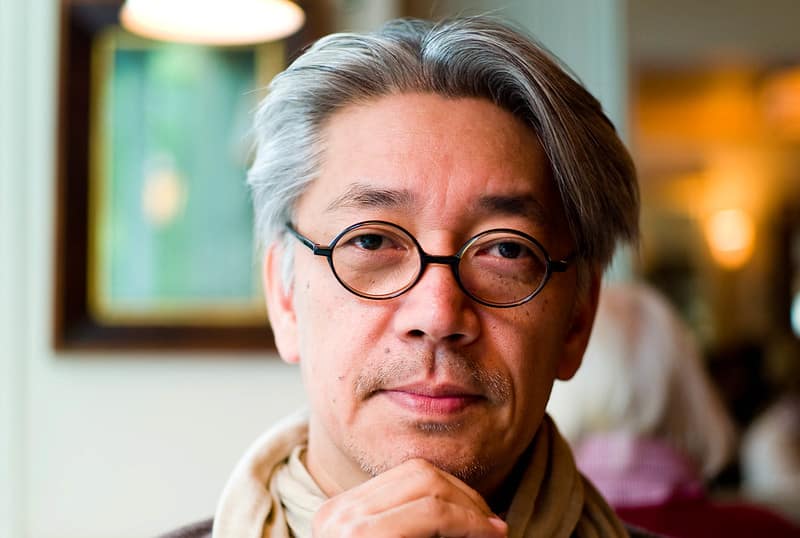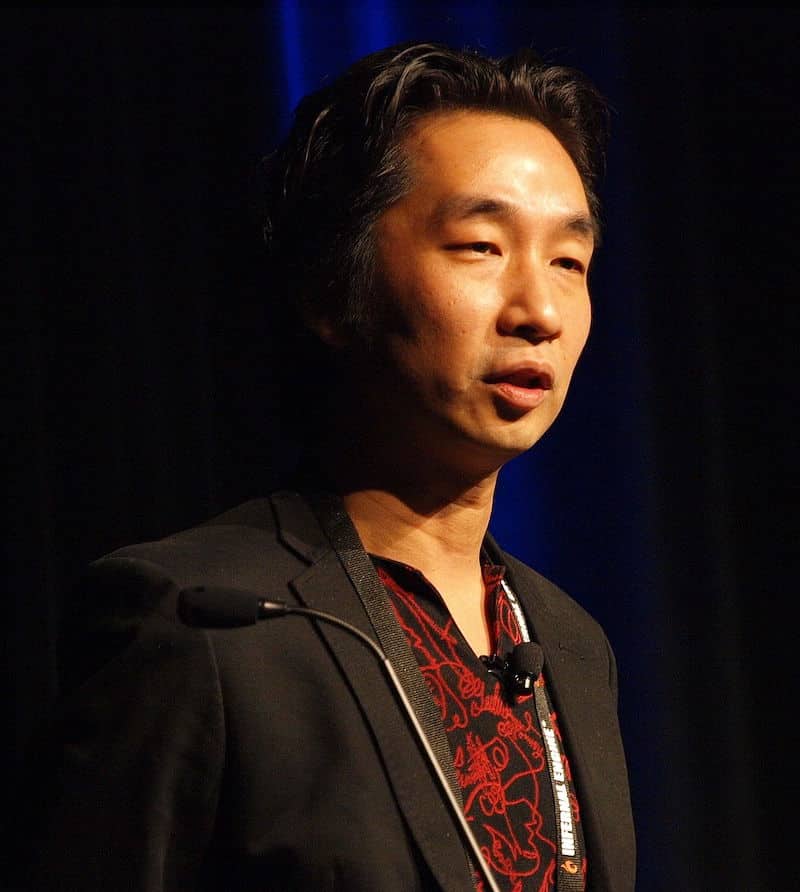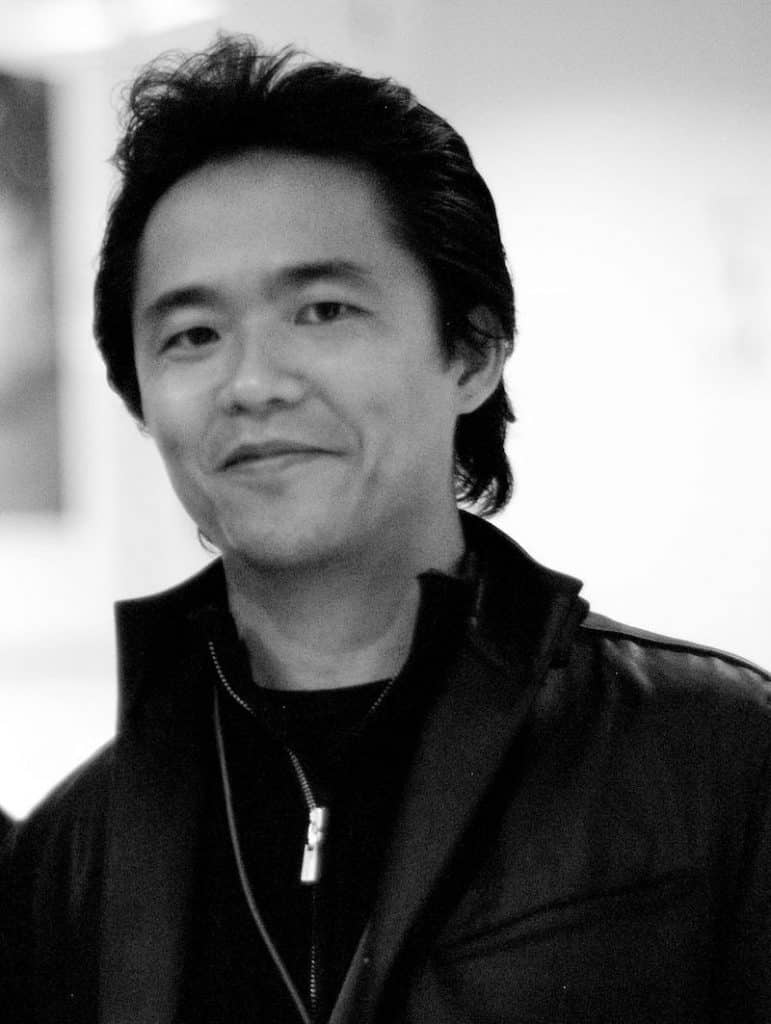Wondering who some of the greatest Japanese composers are? Well, there are a lot to choose from. Japan has a long history of music and in more recent times has defined whole new genres of anime and games soundtracks.
In this post, we’re going to take a look at some of the most famous Japanese composers currently working. Let’s jump in with my favorite, Joe Hisaishi.
1. Joe Hisaishi (Mamoru Fujisawa)
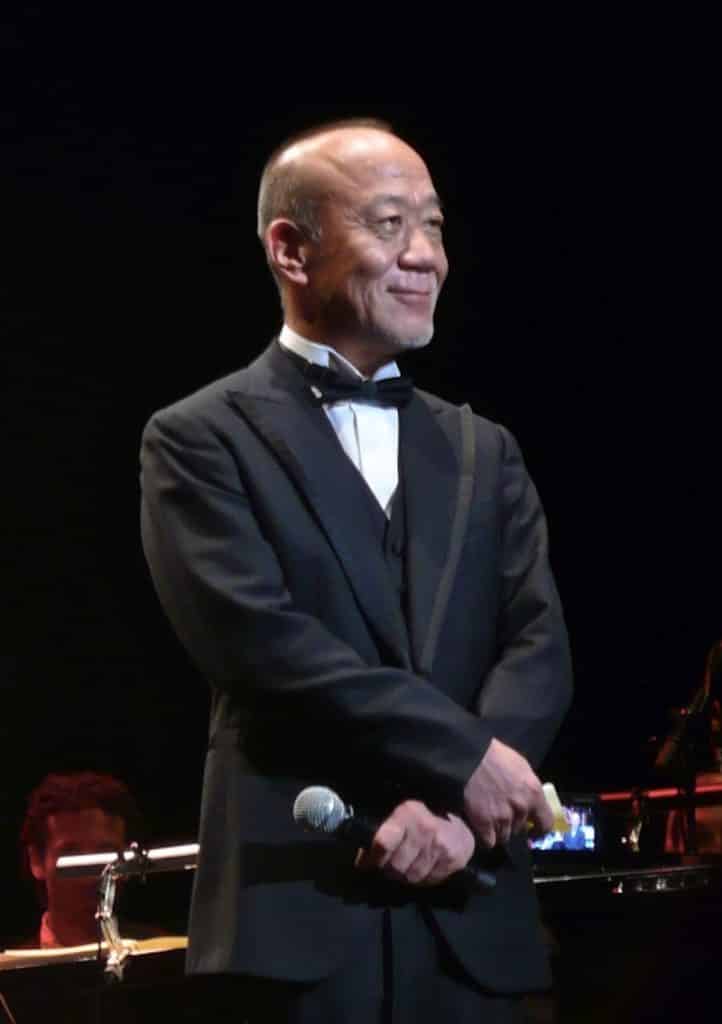
Known for composing memorable melodies for some of the most notable scenes in anime history, Joe Hisaishi has become a legend in his own time.
Hisaishi was born Mamoru Fujisawa on December 6, 1950 in Nakano Japan.
He’s probably most well known for composing the soundtrack for a number of popular Studio Ghibli anime films including Spirited Away, My Neighbor Totoro, and Princess Mononoke.
The prolific composer began studying music at the age of five at the Violin School Suzuki Shinichi.
Best-known for his ability to seamlessly alternate dynamic and moving orchestral film scoring, Hisaishi has also composed film scores, classical works, experimental electronic, and animation music.
He even wrote the soundtrack for the 1998 Winter Paralympics.
But, his collaborations with Studio Ghibli are what brought him international fame.
Here’s a great video Joe Hisaishi conducting an orchestra performing his work at the 25 Years of Studio Ghibli Concert.
He continues to compose scores for movies and video games while also appearing at orchestra concerts throughout Asia and Europe.
2. Ryuichi Sakamoto
Internationally acclaimed composer Ryuichi Sakamoto was born in Tokyo on January 17, 1952.
He started playing the piano when he was three years old and played with jazz bands in high school.
He studied music composition with an emphasis on South Asian and African ethnic music at Tokyo National University, earning bachelor’s and master’s degrees.
Sakamoto started the Yellow Magic Orchestra in 1978 with musicians Haruomi Hosono and Yukihiro Takahashi.
The electronic music band experienced worldwide success, significantly influencing electronic music genres including electropop, technopop, electronica, synthpop, cyberpunk, and ambient house.
But, his writing isn’t just electronic music and in 1987, Sakamoto won the Academy Award for his composition for Bernardo Bertolucci’s The Last Emperor.
He also composed the score for the Japanese animated sci-fi film Royal Space Force: The Wings of Honnêamise.
After an eight-year hiatus, he released an album of unreleased music in 2017. You can listen to some of Sakamoto’s greatest hits here:
3. Yoko Kanno
A legend in the anime world, composer and arranger Yoko Kanno was born on March 18, 1963, in Sendai, Japan.
With a career spanning more than 30 years, Kanno has composed some of the most iconic and memorable soundtracks in anime including Cowboy Bebop and Ghost in the Shell.
Her work has also been featured in video games, live-action films, television series, and advertisements.
Kanno says she discovered her love of music early and began composing when she was just two years old.
She found it was easier to express emotions and feelings with music than words.
She grew up in a home without a radio, television, or a record player, so she focused her attention on learning the piano.
At 22 years old, she became the lead player for the band Tetsu where she produced music with them for three years.
During this time, she became interested in composing scores and began producing scores for video games and films with her husband.
After producing a score for Vision of Escaflowne in 1996, she secured her place as one of the great anime composers of all time.
If you’d like to hear my favorite of Kanno’s full albums, you can do so here:
4. Nobuo Uematsu
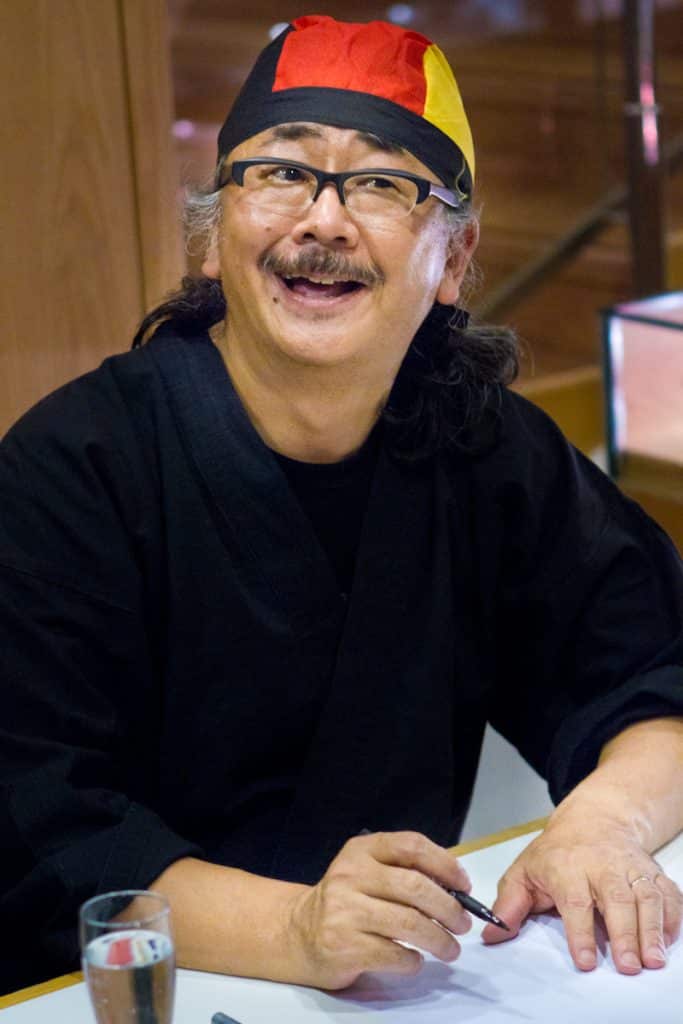
Known as the Beethoven of video game music, musician and composer Nobuo Uematsu was born on March 21, 1959, in Kochi, Japan.
Best known as a composer for the Final Fantasy video game series, Uematsu began teaching himself the piano when he was 12.
He studied at Kanagawa University and was a keyboardist with local bands before getting his break composing music for radio commercials after sending out demo tapes.
His introduction to the video game market came when a friend offered him a job at Squaresoft.
He composed various games at Squaresoft, including the first Final Fantasy released in 1987.
He continued to compose music for the chart-topping Final fantasy series until 2002’s Final Fantasy XI.
During his Final Fantasy years, he released a solo electronic keyboard album titled Phantasmagoria in 1994 and composed scores for various other games.
I grew up playing Final Fantasy VII so here’s a selection of music from one of my favorite games.
5. Akira Yamaoka
Most famous for composing the soundtrack to the Silent Hill video game series, Akira Yamaoka is a Japanese video game composer, guitarist, and sound producer.
Born in Niigata, Japan, on February 6, 1968, Yamaoka has scored many titles for video game makers Konami.
Before music he studied product and interior design at the Tokyo Art College before joining Konami in 1993, Yamaoka was a freelance music composer.
Darkness and tension characterize his music, which typically identifies with the trip-hop, industrial, dark-ambient, and rock genres.
Yamaoka counts Metallica, Depeche Mode, and Angelo Badalamenti as his greatest influences.
Yamoako made his debut in 1991 with the Smart Ball game soundtrack, a collaboration with Yasuhiko Fukuda and Manabu Saito.
When Silent Hill became a best-seller, Yamoako became the franchise’s lead composer.
Besides his work on the Silent Hill franchise, Yamoako released an electronic album, iFUTURELIST, in 2006.
There’s no denying that Yamaoka’s Silent Hill compositions are some of his most famous and inspiring:
6. Junichi Masuda
One of the video game developer Game Freak’s founding members, Junichi Masuda, is a video game composer, director, producer, designer, programmer, singer, and trombonist.
Born in Yokohama, Japan, on January 12, 1968, he is most famous for his work as a director, producer, and composer of the Pokemon series.
Masuda studied computer graphics at the Japan Electronics College before joining Game Freak in 1989.
Programming, music, and sound design for Game Freak titles was Masuda’s first assignment at Game Freak.
Yoshi was his first Nintendo project.
He would compose all of the music and create all of the soundtracks for Pokemon Red and Green.
Pokemon Crystal marked Masuda’s debut as director of the franchise.
Masuda has directed several more Pokemon games, including Ruby and Sapphire, FireRed and LeafGreen, Diamond and Pearl, Black and White, and X and Y.
Although his work on the game’s music has decreased, he composed all of the music for Pokemon Go.
Here’s some of Masuda’s music composed for Pokemon:
7. Kenji Kawai
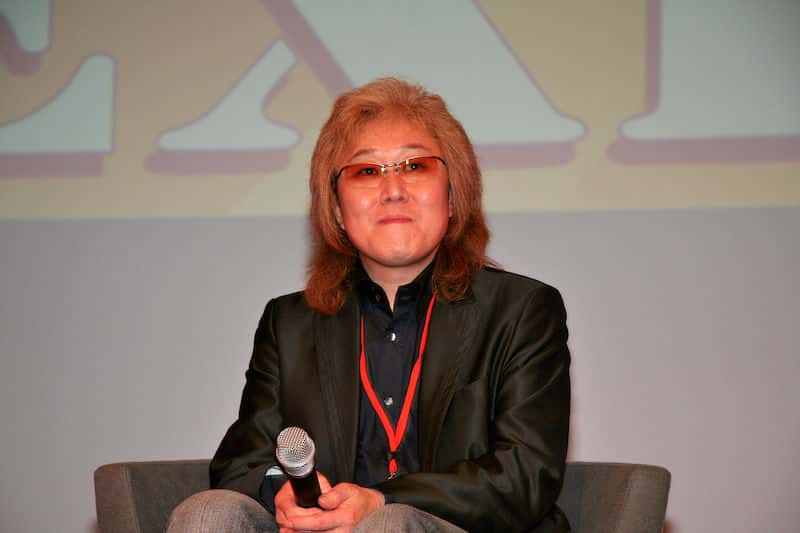
One of the best-known soundtrack composers, Kenji Kawai, was born on April 23, 1957, in Shinagawa, Japan.
Kawai is a music composer and arranger and has produced music for anime, video games, television shows, films, and various other media productions.
Kawai studied music at Shobi Music Academy after he dropped out of Tokai University where he had been studying nuclear engineering.
Ultimately, Kawai would drop out of the music academy as well.
He would later play fusion rock and compete in music competitions in a band he formed with a couple of friends.
He refined his music abilities during the years with the band and gained the technical competency he needed to get involved in the music business.
He used his expertise to compose musical jingles for commercials.
He later moved on to composing anime soundtracks.
His most notable work includes compositions for Young Detective Dee: Rise of the Sea Dragon, Tsui Hark’s Seven Swords, and Kamen Rider Heisei Generations Forever.
Listen to my favorite, Kawai’s Mezame no Hakobune, here:
8. Toshio Hosokawa
Contemporary classical music composer Toshio Hosokawa was born in Hiroshima, Japan, on October 23, 1955.
He began his musical studies in Tokyo, then moved to West Berlin where he studied composition at the Hochschule der Künste under Isang Yun.
When he returned to Japan, he developed his style using Japanese culture and music as his inspiration.
Hosokawa has won international awards and prizes for his compositions, gaining an international reputation after presenting his works in Europe and Japan.
The city of Munich in Germany commissioned his first opera in 1998, the Vision of Lear, which opened to critical acclaim.
Since then, Hosokawa has written operas, composed pieces for orchestras such as Circulating Ocean, and served as composer-in-residence at the Tokyo Symphony Orchestra and the Deutsches Symphonie Orchester Berlin.
You can enjoy one of Hosokawa’s most celebrated works, Landscape I, here:
9. Somei Satoh
Self-taught contemporary music composer Somei Satoh was born on January 19, 1947, in Sendai, Japan.
Satoh launched his career in Tokyo in 1969 an experimental and mixed media group called Tone Field.
Although he’s primarily self-taught, he studied at the Nihon University of Art in the early 1970s.
Critics have compared Satoh’s work to American minimalists and view his work as a mix of western influence and traditional Japanese spiritual and aesthetic traditions.
Shintoism and Zen Buddhism have substantially shaped his career.
His first compositions were for the piano, but he quickly expanded his repertoire to include other instruments, including electronics and traditional Japanese instruments.
Satoh has written over thirty pieces for piano, orchestra, theater, and more during his career.
One of my favorite pieces of his is his hauntingly brilliant Violin Concerto which you can listen to below.
10. Nozomi Aoki
Japanese composer Nozomi Aoki was born on March 2, 1931, in Tokyo.
Aoki’s introduction to music came as a child when he learned to play the violin.
He dropped out of junior high school to become a professional musician after a friend invited him to start a band.
Aoki has spent most of his career arranging music, working on many pop and folk songs.
He’s best known for his work on anime, including composing music for the Hokuto no Ken series, Harmagedon, and Ginga Tesudo Three-Nine.
He made significant contributions to Leiji Matsumoto’s Galaxy 999 and The Galaxy Railways, famous space opera anime series.
He has also arranged works for special effect dramas.
His recent work includes writing compositions for popular video games such as Naruto (2019), The Last Guardian (2016), and SOCOM 4: US Navy Seals (2011).
You can find the ultimate Hokuto playlist here to hear some of his most moving works:
Summing up our List of Famous Japanese Composers
As you can see, although Japan might not be the first country that jumps to mind when you think of composers, there is a huge music scene and this list doesn’t even scratch the surface of talented modern Japanese composers.
They have defined a whole sound of video game and anime soundtracks that and I encourage you to explorer more of their amazing works.

